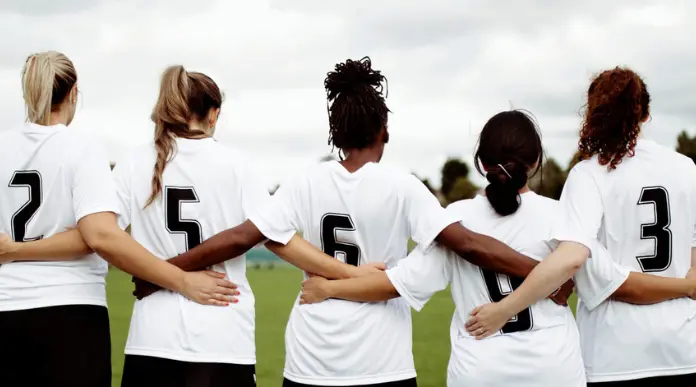In 2025, FIFA’s approach to women’s football and gender equality reflects a complex yet determined effort to grow the women’s game while addressing persistent social and institutional challenges. With an ambitious target of 60 million female players worldwide by 2027, FIFA’s multifaceted strategy combines development initiatives, competition reforms, and labor rights protections. These measures coincide with heightened global attention on gender politics in sport, revealing both progress and ongoing debates about inclusivity, fairness, and institutional change within football governance.
Expanding Participation and Enhancing Competitiveness
Global Development Programs Driving Growth
FIFA’s commitment to increasing female participation in football is anchored in 13 development programs accessible to all 211 member associations. These initiatives focus on grassroots engagement, coaching education, and infrastructure support to make football more accessible and attractive to women and girls globally. This broad institutional push demonstrates FIFA’s recognition of women’s football as a crucial area for growth and sustainability in the sport’s future.
Milestones in Women’s International Competitions
2025 marks historic advances in the women’s international competition landscape. The FIFA U-17 Women’s World Cup has expanded to feature 24 teams and now occurs annually, with Morocco hosting this edition as the first African nation to do so. This milestone highlights FIFA’s efforts to foster geographic inclusivity and increase competitive opportunities for emerging football regions.
Continental tournaments are also undergoing transformation. UEFA’s new women’s national team competition system introduces a Nations League format with promotion and relegation, designed to enhance competitive balance and elevate the visibility of women’s national teams across Europe. Such reforms aim to improve match quality and maintain fan interest year-round, providing a more robust platform for women’s football.
Strengthening Labor Rights and Support for Women Players
Maternity Leave and Family-Friendly Policies
A landmark feature of FIFA’s 2025 gender equality agenda is the introduction of improved labor protections for women footballers. Negotiated with player representatives like FIFPRO, new regulations establish paid maternity leave, family-friendly provisions, and health-related leave, reflecting a growing acknowledgment of the unique challenges faced by women athletes balancing professional careers and family responsibilities.
These policies represent important progress toward gender-sensitive employment standards in professional football, setting precedents for member associations and clubs to create supportive environments that sustain women’s careers longer and more equitably.
Navigating Gender Inclusion and Contested Policies
The Transgender Participation Debate
Despite notable advances, gender politics in football remain complex and at times contentious. The Football Association’s (FA) updated 2025 policy in England, which restricts transgender women from competing in women’s football, illustrates ongoing tensions. This decision, following a UK Supreme Court ruling, ignites debates on inclusivity, fairness, and legal compliance in sport.
Balancing gender inclusion with competitive integrity challenges FIFA and its member associations to navigate polarized public discourse while developing consistent policies. This tension underscores the difficulties in crafting frameworks that respect diverse identities without compromising perceived fairness in women’s competitions.
Commercialization and Social Impact
Enhancing Marketability and Professionalization
FIFA is actively restructuring competition calendars and formats to improve the marketability of women’s football. Increased exposure through television rights, sponsorship deals, and media partnerships aims to generate new revenue streams, which can be reinvested to develop the sport further.
Collaborations with organizations such as UN Women and the French Development Agency underscore FIFA’s strategic vision to leverage football as a tool for social development and gender equality beyond the sport itself. These partnerships emphasize the role of football in empowering women and advancing broader social goals aligned with the United Nations Sustainable Development Agenda.
Persistent Challenges and Uneven Progress
Structural Inequalities Across Regions
Despite these gains, women’s football continues to face entrenched inequalities. Funding disparities, limited media coverage, and underrepresentation in leadership roles persist across many football associations. The pace of reform varies widely depending on regional, cultural, and economic factors, making consistent global progress challenging.
The success of FIFA’s policies ultimately depends on effective implementation at the local and national levels, sufficient resource allocation, and cultural shifts within football institutions that historically have been male-dominated.
Conclusion: Toward Genuine Equality and Empowerment
FIFA’s 2025 gender equality and women’s football policies reflect a comprehensive approach that combines grassroots development, competition reforms, labor rights, and social advocacy. While significant progress is evident in expanding participation and improving working conditions, the complex realities of gender politics require ongoing dialogue and nuanced policymaking.
Achieving genuine equality and empowerment for women in football will demand sustained commitment from FIFA, member associations, and stakeholders worldwide. Addressing persistent structural barriers and balancing competing interests remain critical to ensuring that the sport’s future is truly inclusive and equitable.
As FIFA advances this agenda, the global football community watches closely to see whether these policies translate into transformative change on and off the pitch.













